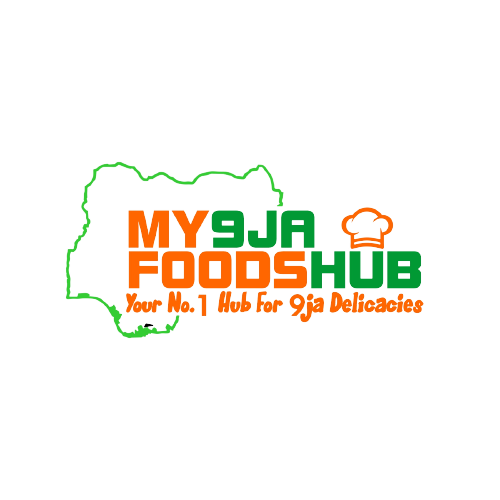As the world grapples with the challenges of healthy eating, Nigerians are not left behind in the quest for a balanced diet that suits their bodies. With the country’s diverse cultural heritage and geographical locations, the concept of a “best diet” can be quite relative. In this article, we will delve into the intricacies of finding the perfect diet for your body in Nigeria, exploring the various factors that influence dietary choices and providing insights into the most suitable options for Nigerians.
Understanding the Nigerian Context
Nigeria is a vast and populous country, spanning across multiple climatic zones and ethnic groups. The country’s cultural diversity is reflected in its cuisine, with various tribes and regions having their unique traditional dishes. However, this diversity also presents a challenge in determining a universal “best diet” for all Nigerians. Factors such as age, sex, body type, lifestyle, and geographical location all play a significant role in shaping dietary needs.
Factors to Consider When Choosing a Diet
1. Age and Sex: As we age, our dietary needs change. For instance, older adults require more calcium and vitamin D to maintain bone health, while pregnant women need more folate and iron. Similarly, men and women have different nutritional requirements, with men generally needing more protein and women requiring more iron.
2. Body Type: Your body type, whether ectomorph, endomorph, or mesomorph, influences your metabolism and nutritional needs. For example, ectomorphs tend to have a faster metabolism and may require more protein to maintain muscle mass.
3. Lifestyle: Your lifestyle, including your occupation, physical activity level, and stress levels, can significantly impact your dietary needs. For instance, athletes or individuals with high-stress jobs may require more protein and complex carbohydrates to maintain energy levels.
4. Geographical Location: Nigeria’s diverse climate and geography can impact dietary needs. For example, individuals living in the hot and humid southern regions may require more hydration and electrolyte-rich foods to combat heat stress.
5. Health Status: Pre-existing health conditions, such as diabetes, hypertension, or food allergies, can influence dietary choices.
Popular Diets in Nigeria
1. Low-Carb Diet: This diet involves reducing carbohydrate intake, focusing on protein-rich foods and healthy fats. It can be effective for weight loss and improving blood sugar control but may not be suitable for everyone, particularly those with high energy needs.
2. Keto Diet: A ketogenic diet is a high-fat, low-carbohydrate diet that can help with weight loss and improve blood sugar control. However, it may not be suitable for everyone, particularly those with certain medical conditions.
3. Intermittent Fasting: This diet involves alternating periods of eating and fasting to promote weight loss, improve insulin sensitivity, and boost longevity.
4. Portion Control Diet: This diet involves eating smaller portions of all foods, without restricting specific food groups. It can be an effective way to manage weight and improve overall health.
Traditional Nigerian Diets
1. Fufu and Soup: A staple diet in many Nigerian households, fufu (made from cassava or yams) paired with a variety of soups (such as egusi or Ogbono) provides a balanced mix of complex carbohydrates, protein, and fiber.
2. Jollof Rice and Vegetables: This popular one-pot dish is made with rice, tomatoes, onions, and a variety of vegetables. It’s a nutritious and filling option that can be paired with protein sources like chicken or fish.3. Akara and Pap: A classic Nigerian breakfast combo, akara (fried bean cakes) paired with a bowl of pap (made from cornmeal or millet) provides a boost of protein, fiber, and complex carbohydrates.
Tips for Choosing the Best Diet for Your Body
1. Consult a Healthcare Professional: Before starting any new diet, consult with a healthcare professional, especially if you have underlying health conditions.
2. Set Realistic Goals: Define your dietary goals, whether it’s weight loss, improved blood sugar control, or enhanced overall health.
3. Choose a Balanced Diet: Select a diet that includes a variety of foods from all food groups, including fruits, vegetables, whole grains, lean proteins, and healthy fats.
4. Be Mindful of Portion Sizes: Pay attention to serving sizes and control your portions to maintain a healthy caloric intake.
5. Stay Hydrated: Drink plenty of water throughout the day to stay hydrated and help control hunger.
READ MORE: Gluten-Free Goodness: Nigerian Snacks for Special Diets
Choosing the best diet for your body in Nigeria requires careful consideration of various factors, including age, sex, body type, lifestyle, and geographical location. While modern diets have gained popularity, traditional Nigerian diets are still an excellent option for many. By understanding the factors that influence dietary needs and selecting a balanced diet that suits your body, you can achieve optimal health and wellbeing. Remember to consult with a healthcare professional before starting any new diet, and always prioritize a balanced and varied eating habit.






